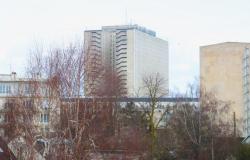
Denis Dreyfus, lawyer for the association of victims of the Crépol ball, was a guest of France Bleu Drôme Ardèche, this Monday morning.
France Bleu Drôme Ardèche: you are not defending the family of Thomas Perotto, but all the other people who were present on the evening of the tragedy. How many have decided to become a civil party?
First of all, the animation committee is this association which, since the 1960s, has animated the village of Crépol and organizes festive and convivial events. Unfortunately, we know what happened a year ago. And then, having met a certain number of young people who were present at the evening, I am going to become a civil party for a group of at least fifteen young people who for the moment had not yet come forward.
Did these young people do it very recently?
Yes, because I believe that they have lived for a year in astonishment, for some unable to talk about it. I saw a mother tell me “my son is totally blocked and he definitely doesn't want to broach the subject and the drama“And then it took time because the path for the victim of a traumatic scene is long. And sometimes, we know in a whole series of cases, it takes this time to be able to manifest, to speak up, to express themselves. That’s what they’re going to do.
What do your clients expect from justice?
I believe that in this tragedy, and another very recently occurred (the death of Nicolas Dumas in front of the Seven nightclub in Saint-Péray editor's note), I would say that we are all in solidarity, we are all Thomas or Nicolas . He must be heard, he must be able, when the time comes, to express himself, and above all, justice must do its job. In serenity, it is fundamental, where it has not always existed in this matter. And I believe that justice has above all a duty of excellence and this is without a doubt what is currently being done during the investigation and what will be done when the time comes in a hearing which will be extremely important, long and difficult.
How are your customers doing today? You say that there was the period of astonishment, a year has passed, and today?
They are doing badly. I take the example of this boy mechanic who is drowned in his work and who does not want to talk about it. I take the example of this other boy I met. You know, they are like us, they are good kids from our country villages. Really extremely friendly but also very very discreet and this other boy who goes on trips for his boss he can't sleep at the hotel alone in the evening and he goes back to his girlfriend because there is still this trauma this impossibility to remain in solitude. I felt, through the meeting we held recently, this shadow of fear which still hovers, not only over Crépol, but over the consciences of all those who were there. As if they had a feeling of guilt for having been there, for not having done better or more to save Thomas.
“The shadow of fear”, fear of what?
The fear that was generated by the national scale that this drama took on at the time, of finding oneself like that in the sad spotlight. The fear also of this possibility which is totally impossible, but this risk that they (the attackers editor's note) will come back to carry out the coup that they experienced.
Fear of reprisals?
Yes, maybe. Finally, the fear of it starting again. And finally, they buried this “never again” within themselves without always being able to express themselves.
Does that mean that some people, with this fear, have installed surveillance systems in their homes? How far has it gone?
Yes, in any case the fear of going out because when we go to Crépol and we look at this village hall, it is one of our quietest villages in France, it seems inconceivable that what happened happened there. And then for many they still have the images of Thomas because they were the first, even before the arrival of emergency services, to provide him with the first gestures of survival.
Today, the murderer has still not been formally identified. Do you fear a trial without an accused?
Yes, I fear so. I fear that the investigation will continue without us being able to identify the cowardice of the person or people who stabbed.





